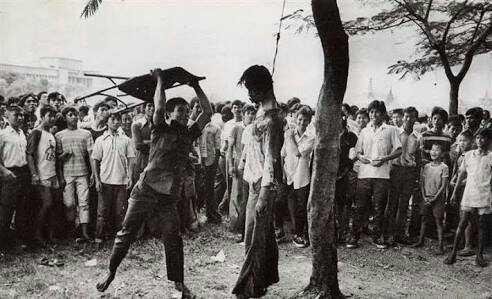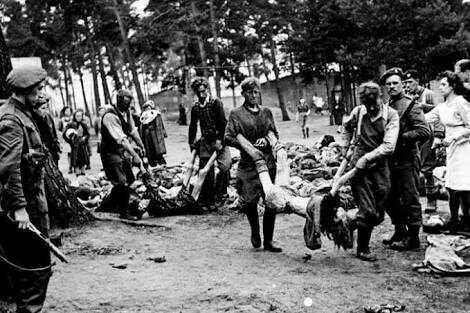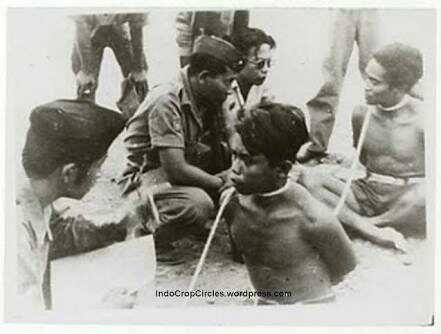Brief History of G30S / PKI Events in Indonesia

The history of the G30S / PKI, also known as the original name, of the September 30 Movement or other abbreviations of the Gestapu (September Thirty Movement) and Gestok (October One Movement) is one of the events that occurred when Indonesia was a few years independent. As the name implies, this incident occurred on September 30, 1965 night, until the next day where there was the killing of seven high-ranking military officers in a coup.
The failed attempt was then dropped to members of the then-powerful Indonesian Communist Party because they were judged very close to the first Indonesian President of the time. Whether or not the Indonesian Communist Party is fully responsible for this incident remains a matter of debate today.
Prior to the G30S / PKI incident, the Communist Party of Indonesia (PKI) was listed as the largest Communist Party in the world without counting the communist parties in the Soviet Union and China. When audited in 1965, it was noted that the active members of this party exceeded 3.5 million, not counting the 3 million who were members of the youth movement.
In addition, the PKI also had full control of labor movement, adding 3.5 million more under its influence. It has not stopped, because there are still 9 million members of the peasant movement, as well as several other movements such as the women's movement, the author's organization, and the movement of scholars that has made the total membership of the PKI reach 20 million members including its supporters.
What made the public suspect that the PKI was the mastermind behind the 30 September movement began with the events of July 1959, at which time the parliament was dissolved, and Soekarno stipulated that the constitution was under a presidential decree, with the PKI standing behind, giving full support. The PKI also welcomed the new system introduced by Soekarno, the Guided Democracy which, according to the PKI, was able to create a NASAKOM (Nationalist, Religious, and Communist) conception alliance.
At the time of this guided democracy unfortunately the collaboration of PKI leaders with the bourgeoisie in Indonesia failed to suppress the independent movement of workers and peasants, causing many unresolved issues in the political and economic fields.

The G30S / PKI incident started on 1 October morning, where troop groups moved from Halim Perdana Kusuma Air Field to the south of Jakarta to kidnap seven generals who were all members of the army staff. Three of the victims planned, they killed in their home, Ahmad Yani, M.T. Haryono, and D.I. Panjaitan. The three other targets of Soeprapto, S. Parman, and Sutoyo were captured alive, while their main target, General Abdul Harris Nasution, escaped after jumping over a wall adjacent to the park at the Iraqi embassy.
Even so, Pierre Tendean who became his personal aide was arrested, and his five-year-old daughter, Ade Irma Suryani Nasution, was shot by squad and killed on October 6. The death toll increased when the kidnappers shot and killed a policeman who became the guardian of Nasution's neighbor's house, Karel Satsuit Tubun. The latest death toll was Albert Naiborhu, the nephew of Pandjaitan, who was killed while attacking the general's house. The surviving bodies and generals were then taken to Lubang Buaya, and all were killed and their bodies dumped in a well near the base.

As the sun began to rise, about 2,000 troops were deployed to occupy what is now known as Lapangan Merdeka, a park in Monas. Even so, they were unable to subdue the eastern part of this area, because at that time it was the headquarters of KOSTRAD headed by Soeharto. At 7 am, RRI broadcast messages from Untung Syamsuri, commander of Cakrabiwa, the guard regime of the President, that the September 30th movement has managed to take over several strategic locations in Jakarta with the help of other military personnel. They insist that the movement is supported by the Central Intelligence of America (CIA) aimed at bringing down Sukarno from his position.
Who wrote the ink of failure in the history of the G30S / PKI event is most likely because they missed Suharto, who they thought was silent and not a political figure at the time. Suharto was told by his neighbors about the disappearance of the generals and the shootings that occurred at 5:30 am, and because of this he immediately moved to KOSTRAD headquarters and tried to contact the naval and police officers, but failed to make contact with the air force.
citing pki history in indonesia
@aidilmuhammad
Upvoted ☝ Have a great day!
Downvoting a post can decrease pending rewards and make it less visible. Common reasons:
Submit